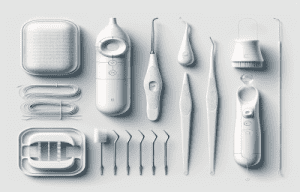Growing up comes with numerous changes, and sometimes oral hygiene takes a back seat in the tumult of teen life. Yet, as dental health professionals repeatedly emphasize, flossing is crucial for maintaining overall oral health. Getting teenagers to adopt this vital practice can be challenging, so here are some strategies to guide them towards healthier habits.
Understanding Why Flossing Matters
First and foremost, teenagers need to understand why flossing is essential. Dental plaque, a filmy substance that contains bacteria, forms on the teeth throughout the day. Brushing alone doesn’t fully remove this plaque. Flossing complements brushing by reaching areas a toothbrush cannot, preventing tooth decay and gum disease. Explain the implications of long-term oral health and how neglecting such a small act today can lead to issues like cavities, gum inflammation, and even tooth loss in later years.
How can I explain the importance of flossing to a teenager?
The Appropriate Flossing Technique
Ensure that your teenager knows the correct way to floss. This involves wrapping the floss around both index fingers, gently moving it up and down between each tooth, and taking care not to jab it into the gums. They should also use a clean section of floss for every tooth to avoid moving plaque from one place to another.
Make it a Family Affair
Consider making flossing a family activity. This way, teenagers view it as a standard routine rather than an optional activity. It also allows you to monitor younger children and ensure that everyone is flossing correctly.
Flossing Tools
Traditional string floss can be difficult for some teens to maneuver. Thankfully, a host of flossing tools, like water flossers and floss picks, are now available. These tools are often easier for teens to handle and can make flossing feel less like a chore. Let your teenager pick out the tools they feel most comfortable with.
The Power of Role Models
Teenagers often look up to role models. Celebrities or influencers that promote healthy habits can significantly influence a teenager’s behavior. Show them public figures who prioritize oral health or share stories about celebrities who regret not taking good care of their teeth.
Involving the Dentist
It can be beneficial to have reinforcement from a dentist. During regular check-ups, ask the dentist to explain the importance of flossing. Sometimes, hearing it from a professional can make the message more impactful.
Make it Fun
There are numerous mobile applications and games designed to make things like brushing and flossing more interesting. These tools provide a fun channel that encourages teenagers to improve their oral hygiene and develop healthier habits.
Remember that it’s never too late – or too early – to start healthy oral hygiene habits. Motivating teenagers to floss can be tough, but with time, patience, and consistent efforts, you can help them understand the importance of taking care of their teeth. This lesson is not just about their oral health; it’s about instilling in them a sense of responsibility for overall well-being, a lesson they will carry with them well beyond the teen years.


